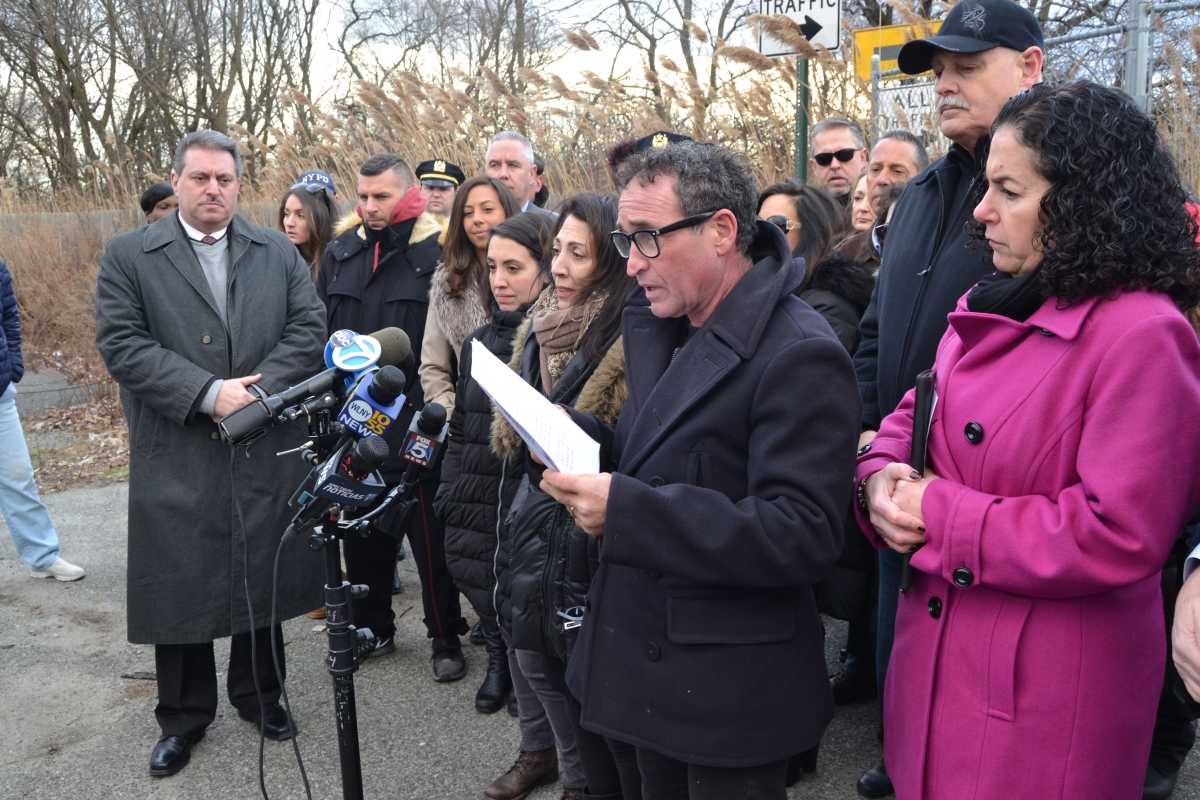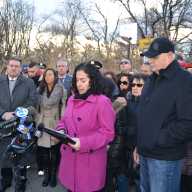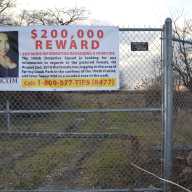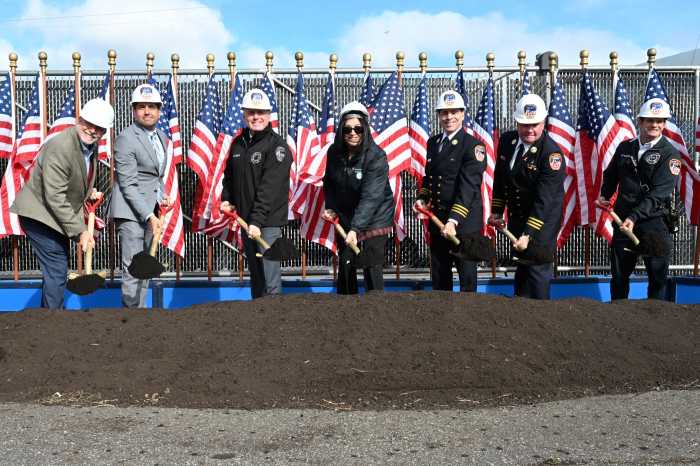Updated Feb. 7, 10:55 a.m.
With a suspect now in custody for the brutal murder of Howard Beach jogger Karina Vetrano, elected officials and the Vetrano family will continue to call for the use of expanded genetic testing.
Flanked by family, friends, police officers and elected officials, Phil and Cathy Vetrano — parents of Karina Vetrano, whose murder case is still unsolved — called on the New York State Commission on Forensic Science to allow the state to adopt familial DNA matching during a press conference on Thursday, Feb. 2, just outside the park where their daughter’s body was found six months ago.
Before cops brought in a suspect in Vetrano’s case this weekend, the family hoped that the use of familial DNA testing could be used to help find her killer and bring him to justice. Ultimately, that test was not needed.
The number of supporters for familial DNA testing continues to grow. Queens District Attorney Richard Brown; state Senators Phil Boyle, Joseph Addabbo and Tony Avella; Assemblywoman Stacey Pheffer Amato; and Councilman Eric Ulrich already support the use of the investigation method.
The state Commission on Forensic Science will hold a special hearing on Feb. 10 to discuss if familial DNA testing should be used in New York. The Vetranos, local elected officials, and experts on familial DNA testing will all testify before the commission in support of the research option.
“Though there is nothing bigger for the family than seeing justice for the tragedy that befell their daughter, Phil and Cathie, along with my office and Senator Addabbo’s, have a vitally important mission we intend to see through,” Pheffer Amato said on Monday, Feb. 6. “Our police are endlessly hard-working. The victims’ families will do anything to pursue justice. The least we can do to honor them all is to use every tool already at our disposal, so the process of justice can move swiftly and fairly from here on out. This Friday, Feb. 10, I will be testifying before the State Commission on Forensic Science to implore them to allow familial DNA matching in New York state.”
Through familial DNA matching, investigators use the state’s criminal database to find close relatives of the perpetrator. This type of testing would be helpful in finding Vetrano’s killer since police have recovered genetic evidence from the crime scene and have a DNA profile of the murderer, but local and national DNA criminal databanks have not turned up a match.
“Imagine having the technology, the ability of finding killers, murderers, rapists. Imagine having that in your grasps and then saying ‘No, we’re not going to do it,’” Addabbo said. “That’s what we face with familial DNA. Familial DNA, very simply, is a supplement. It’s after the regular DNA research falls short. It’s after every other lead goes cold. Then you can use familial DNA to try and help an investigation.”
Last December, Boyle introduced legislation (S.2956), which would allow the use of familial DNA testing for violent crimes when the DNA comes from a single source and all other investigative sources has failed.
The piece of legislation has gained the support of Addabbo and Avella, and the senators will be introducing the bill to the Senate floor.
“I can tell you that Senator Addabbo, Senator Avella, we are going to bring the bill to the floor,” Boyle said on Feb. 2. “I talked to Senator [John] Flanagan — the majority leader — we’re going to bring it to the floor next week and pass it in the New York Senate.”
Even though cops now have a suspect in the Vetrano case, elected officials are still pushing for the use of familial DNA testing in New York to help solve other violent cases.
Although familial DNA testing has been used in nine states, and has helped solve previously unsolved cases, the American Civil Liberties Union (ACLU) of Illinois believes the use of familial DNA testing violates a host of privacy issues.












































